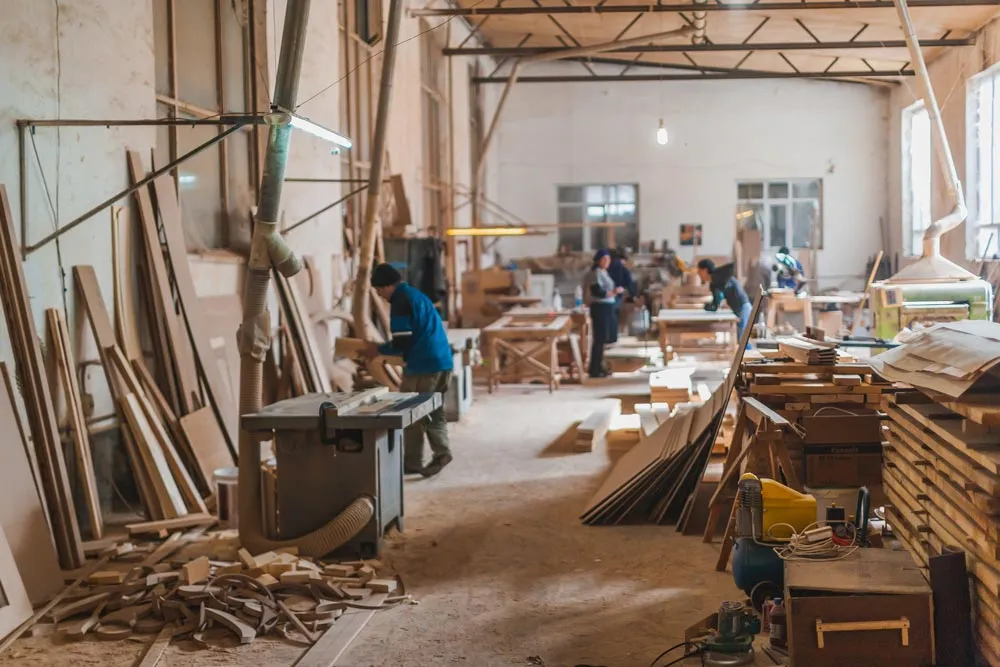- March 20, 2017
- No Comment
Got wood? Wooden Furniture Set to Make a Rebound in 2017

Wood has not escaped the downturn which has rattled mining and manufacturing industries around the globe. With Chinese markets slowing and the still-smarting global financial crisis disrupting markets, wooden furniture has suffered in kind. However, recent trends in high-end and bespoke furniture may pull the wooden furniture market from the brink.
In recent years, the global demand for wood has seen plenty of peaks and troughs. European demand for hardwood decreased in 2016, whereas the US market was the only market globally to gain ground in 2014/15. The wooden furniture market in particular is bucking the general trend of struggle in the wider wood markets, with orders up by 11% year-on-year, according to Smith Leonard’s latest report.
Traditional materials such has wood have largely been superseded over the years, with the advance of concrete and steel in construction and manufacturing. There’s no denying however, that there is a certain beauty in wood that simply cannot be replicated by more industrial materials. High-end, high-lacquered wooden furniture and fittings are forecast to make a big comeback in 2017, according to Mansion Global.
Furniture as Art
Award-winning architect and designer Jeffrey Beers, of Jeffrey Beers International attributes the growing trend to the versatility of wood, and its ability to achieve a finish that is both attractive and functional.
“As an architect, I am naturally drawn to clean lines and finishes, and the lacquered walls give a polished and tailored look, as well as add another layer of texture to the overall interior space,” Beers says.
Well-made, wooden furniture saw a resurgence in the 1950s, when quality pieces were considered to be an investment. Chairs, coffee tables and buffets were on display as pieces of art—beautiful, functional and even timeless. Now it seems that this trend is returning, with vintage pieces becoming highly collectible. Furthermore, wooden fittings are becoming popular in residential and commercial buildings alike, to add a warm and bespoke, high-end effect to spaces. Beers’ design of the One57 building in Manhattan makes use of lacquered wooden panels to give an intimate and highly-polished look to the lobby. His design for the new Atlantis Sanya in China also focuses heavily on the same trend.

Technology in Woodworking
While there is a certain puritan, anti-industrial sentiment in the woodworking industry around creating ‘quality’ and unique furniture, there’s no doubt that advances in woodworking machinery and techniques have made it easier for small businesses to enter the market, as well as for existing players to diversify and increase production. Technological advances such as CNC-machining and glulam techniques mean that beautiful, bespoke pieces of furniture and fittings are not only easier to manufacture, but less costly. This is good news for consumers, as wooden furniture is accessible at both ends of the market.
A Return to Roots
The industrial revolution brought much of the globe into a brave new world of mass production and cheap construction. It has come at a cost, however, with the environment and small business being the biggest losers in this equation. Building homes and furniture for rapidly increasing populations (and workforces) was only possible with the advent of industrial materials. As the rest of the world comes to terms with the environmental impacts of these processes, China is only just beginning to cool down from their own recent industrial boom.
Despite this, there is a distinct appetite among certain markets to move back to sustainable building—and this means building with sustainably-sourced wood. Increasingly, architects, designers and home builders are taking great pains to build with as little environmental impact as possible. Furthermore, the natural beauty and versatility of wood is coming back into fashion, as the trend towards the sleek minimalism of steel and concrete begins to fade.
If Jeffrey Beer and his contemporaries are correct in their forecasting, this trend will continue into 2017, and will be welcome news for the woodworking industry.





